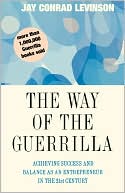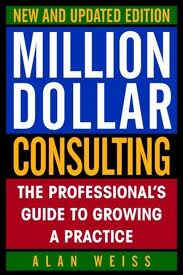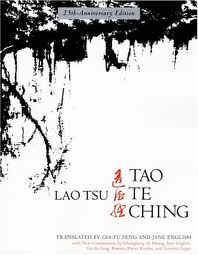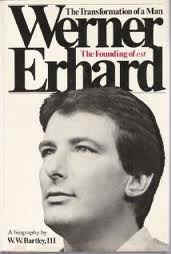| |
My 30 Favorite Business Books
As of January 2011,
I have been earning a living on my own for
30 years. It's as good a time as any to
list the books I often recommend to clients and
those that have made a huge difference in the way I
do business.
For your
convenience, the covers link to the books'
descriptions on Amazon. These are not
affiliate links.
Bound for Success
|

|
|
The Law of
Success by Napoleon Hill. Incredibly,
Hill first published this work in 1928.
Depending on which edition you read, it presents
16 or 17 timeless principles of business success
that Hill derived from close study of the
careers and operating principles of 19th century
greats like Henry Ford, Andrew Carnegie and
Thomas Edison. The way he explains his
"mastermind" idea here is much more
spiritual than the contemporary version of the
concept.
|
|

|
|
The Way of the
Guerrilla by Jay Conrad Levinson.
Interested in achieving balanced success as an
entrepreneur? Having maintained a
three-day workweek since the 1970s, Levinson
shares his perspectives on measuring success,
delegating, creating positive relationships with
customers and vendors, living your passion and
dealing with change.
|
|

|
|
The Well-Fed
Writer: Financial Self-Sufficiency as a Commercial
Freelancer in Six Months or
Less by Peter Bowerman. Because I
coach so many copywriters, I have probably
suggested this top-notch how-to book more often
in the last 15 years than any other. I
also recommend it highly to anyone who wants to
gear up for a campaign of cold calls.
|
|

|
|
6 Steps to
Free Publicity by Marcia Yudkin.
Psychologists tell me that no matter what they
say, parents do have favorite children, and
likewise, this is my favorite of all the books I
have written. It was energizing and
educational for me to write this book, and I'm
excited to know that it has spawned many, many
successes for its readers. |
Growing Your Business
Getting Everything You Can
Out of All You've Got: 21 Ways You Can
Out-Think, Out- Perform, and Out-Earn the
Competition by Jay Abraham. I absorbed
the contents of this book before it was
published, through a subscription to Abraham's
paid newsletter. He offers solid ways to
increase your earnings through strong offers,
referrals, creative deal-making and more.
|
|

|
No
B.S. Business Success by Dan Kennedy. If you haven't read
anything by Dan Kennedy, who deserves an
honorary Ph.D. in street smarts, this is a
decent place to start. Although I take
issue with his politics and some of his
marketing tactics, I have learned loads from
Kennedy.
|
|

|
Million Dollar
Consulting by Alan Weiss. Deservedly a
classic, this should be read by anyone who sells
services. Weiss is one of the two smartest
people I have ever personally met. (The
other was a professor of mine at Cornell, Max
Black.) His book offers the voice of
experience on developing proposals that earn a
"yes" and pricing for profit, among
many other useful topics.
|
|

|
| There's a
Customer Born Every Minute: P.T. Barnum's
Secrets to Business Success by Joe
Vitale. I love how grounded this book is
in P.T. Barnum's actual life (versus the
legends) and how it conveys ideas relevant to
today's business world in an entertaining
fashion. Highly recommended if you're
looking for creative approaches to
self-promotion. |
|

|
The Craft of Communication
|

|
|
The Elements
of Style by William Strunk, Jr. and E.B. White.
Nicknamed "Strunk and White," this
little gem of a book deserves to be read and
reread early in your career, until its
principles of clear, concise writing become
second nature to you.
|
|

|
|
Getting the
Words Right: How to Revise, Edit & Rewrite
by Theodore A. Rees Cheney. Filled with
many helpful examples, this book explains how to
make your communication clearer and more to the
point by straightening out the overall message
first, then paying attention to your choice and
arrangement of words.
|
 |
|
Information
Anxiety by Richard Saul Wurman. As you
might expect from the man who spearheaded the
TED conferences, this is an unclassifiable book
of brilliant observations on instances where
communication goes wrong, along with suggestions
of principles that make information easier to
take in. My copy is crammed with more than
two dozen little bookmarks so I can quickly find
the passages that inspired me most.
|
 |
|
Designing Web
Usability: The Practice of Simplicity by
Jakob Nielsen. Yes, the Web has evolved
since Nielsen published this book in 2000, but
at least 85% of the perspectives in this book
about communicating through a web site are still
valid. Learn how and why to adopt the
visitor's point of view when presenting your
business online.
|
 |
|
The Visual
Display of Quantitative Information by
Edward R. Tufte. Discover how to
communicate data clearly in charts, graphs and
schematic pictures. Fascinating and
thought-provoking.
|
 |
|
Influence: The
Psychology of Persuasion by Robert Cialdini.
A tremendously influential, research-backed book
on the psychological elements that help you
persuade people to buy or agree with you,
including reciprocation, scarcity and social
proof. |
Creativity
How to Get
Ideas by Jack Foster. Of all the 200+
books I have read on the creative process, this
one has the best anecdotes and the wisest
lessons. It's tightly written and cutely
illustrated.
|
|
 |
You Don't Have
to Go Home From Work Exhausted by Ann
McGee-Cooper. You've heard of time
management, but how about energy
management? That's the focus of this
nicely illustrated, well-written and engaging
discussion of improving your productivity and
work stamina.
|
|
 |
Exercises in
Style by Raymond Queneau. Even more
astonishing than the fact that this quirky romp
of a book was actually published (in 1947) is
that it was translated from French to
English. It retells a simple story over
and over again 99 different ways, with some of
the writing styles insanely baroque and others
philosophically instructive.
|
|
 |
The Art of the
Possible by Dawna Markova. I am so
grateful to my friend Kathleen Lake for
introducing me to Markova's work on learning
styles. It has vastly improved my
self-understanding, my ability to relate to
people who learn differently than I do and to
get my message across to those with
communication preferences that diverge from
mine.
|
|
 |
The Now Habit by
Neil Fiore. Ounce for ounce, this book
contains more help than any other I've read for
procrastinators or anyone who is stuck or
stalled in a big project.
|
|
 |
| The Path of
Least Resistance by Robert Fritz. This
author had quite a following in the 1980s for
his blueprints on how to break out of
unproductive patterns and reach difficult
goals. My heavily underlined and annotated
copy contains an insert showing offices in five
countries. This is a discussion of the
dynamics of personal creativity that if you're
like me, you'll come back to again and
again. |
|
 |
The Psychology of Wealth
 |
|
Secrets
of Six-Figure Women by Barbara Stanny.
What, a matchmaker making more than $100,000 a
year? A makeup artist doing so?!
This book is eye-opening and freeing.
Whether you're male or female, if you are not
earning up to your potential, it's helpful to
measure yourself against the attitudes of the
successful people interviewed in this book.
|
 |
|
The
Millionaire Next Door by Thomas J. Stanley
and William D. Danko. I remember clearly
what a revelation this 1996 book was to many
people in documenting that most wealthy people
actually drive ordinary cars and that most
people who flash signs of wealth aren't
necessarily rich. Reading it reinforced my
belief in living below one's means as a steady
route to the lifestyle of one's
dreams.
|
 |
|
Spider, Spin
Me a Web by Lawrence Block. A very
small section of this book (Chapter 38) contains
mystery writer Block's unconventional philosophy
of financial security for writers, which left a
lasting impact on me.
|
 |
|
The Seven Laws
of Money by Michael Phillips. Despite
the hippie-dippie tone of this 1974 book and its
wild design, the author was not a dope-smoking
dropout but one of the financial wizards who
brought MasterCard into being. Phillips'
Law 5, "You can never really give money
away" and Law 6, "You can never really
receive money as a gift," are especially
worthy of deep reflection.
|
 |
|
Money and the
Meaning of Life by Jacob Needleman.
During a period when I spent several years
working on an (unpublished) autobiography
centered on the theme of money, I found this
book extremely helpful in casting light on the
various cultural reasons why we might be tempted
to measure ourselves by money.
|
 |
|
Money-Smart
Secrets for the Self-Employed by Linda
Stern. Most personal finance and money
management books give short shrift to the topics
small business owners and solo entrepreneurs
need help on the most. This book fills
that gap with practical guidance on budgeting,
record keeping, managing risks, planning for
retirement, collecting money from clients and
more. |
The Zen of Business
The Way (also
known as Dao De Jing or Tao Te Ching) by
Lao Zi. I never got very far reading Sun
Zi's Art of War, assigned in many MBA
programs, but this other Chinese
classic from the sixth century B.C. resonates deeply with
me. I also happen to be married to someone
who often quotes from Chapter 56 of this work:
"He who knows does not speak. He who
speaks does not know."
|
|
 |
Zen Mind,
Beginner's Mind by Shunryu
Suzuki. "In the beginner's mind there
are many possibilities; in the expert's
mind there are few." In parables,
instruction and teachings, this book explains
why it can be so challenging to find a simple
answer, to stay humble and to create elegance in
any realm of life (including business).
|
|
 |
Werner Erhard: The Transformation of a Man,
The Founding of est by W.W. Bartley III.
There isn't an adequate book on the
controversial legacy of Erhard Seminars Training
(est), but this book is the next best
thing. Like me, Bartley was an
academically trained philosopher who benefited
from Werner Erhard's shortcut to
enlightenment. To outsiders, est was a
cult in which bullies kept a ballroom full of
people from taking bathroom breaks over the
course of two weekends. The positive
impact of this Zen-like human-potential
training, however, which I took in the summer of
1978, lingers with me to this day. With
both my clients and myself, it enables me to
separate beliefs from facts and think more
clearly.
|
|
 |
| Loving What Is: Four
Questions That Can Change Your Life by Byron Katie.
This book offers a life-affirming
method of detaching yourself from self-defeating
patterns, especially when you believe that
people - clients, competitors, the economy,
family members - are harming you. Usually
the harm turns out to be in your own head.
Katie has an unusual combination of sweetness
and steely loyalty to the truth that shines a
compassionate mirror on someone who's suffering
and helps them see the way beyond. Though
this book doesn't have much business content,
her method of inquiry definitely applies to
business issues. |
|
 |
A Bonus
|

|
|
My all-time favorite novel
is The Lost Steps by Alejo Carpentier.
Most years I read well over 100 novels, and
this is one that has stuck in my memory for more
than 30 years as not only being a compelling
read but also containing wise lessons about
life. The story concerns a weary film
composer who flees the city and heads upstream
on the Amazon, farther and farther from
civilization. In a simple village that
couldn't be any deeper in the jungle, he starts
to live outside of time, recovers his creativity
and makes a fateful, tragic choice. The prose of
this book, translated from Spanish, is lush, the
themes profound and the plot riveting. |
Your Own Book?
Over the years,
I've been hired as a developmental editor,
pre-publication critic, marketing coach and
how-does-it-all-work publication consultant for
scores of books. For in-depth help, come
work with me on your book in Maui next
winter or
spring and write it all off on your taxes.
Or stay at home and make astounding progress in
30 days through my Book
Intensive coaching program.
|

































